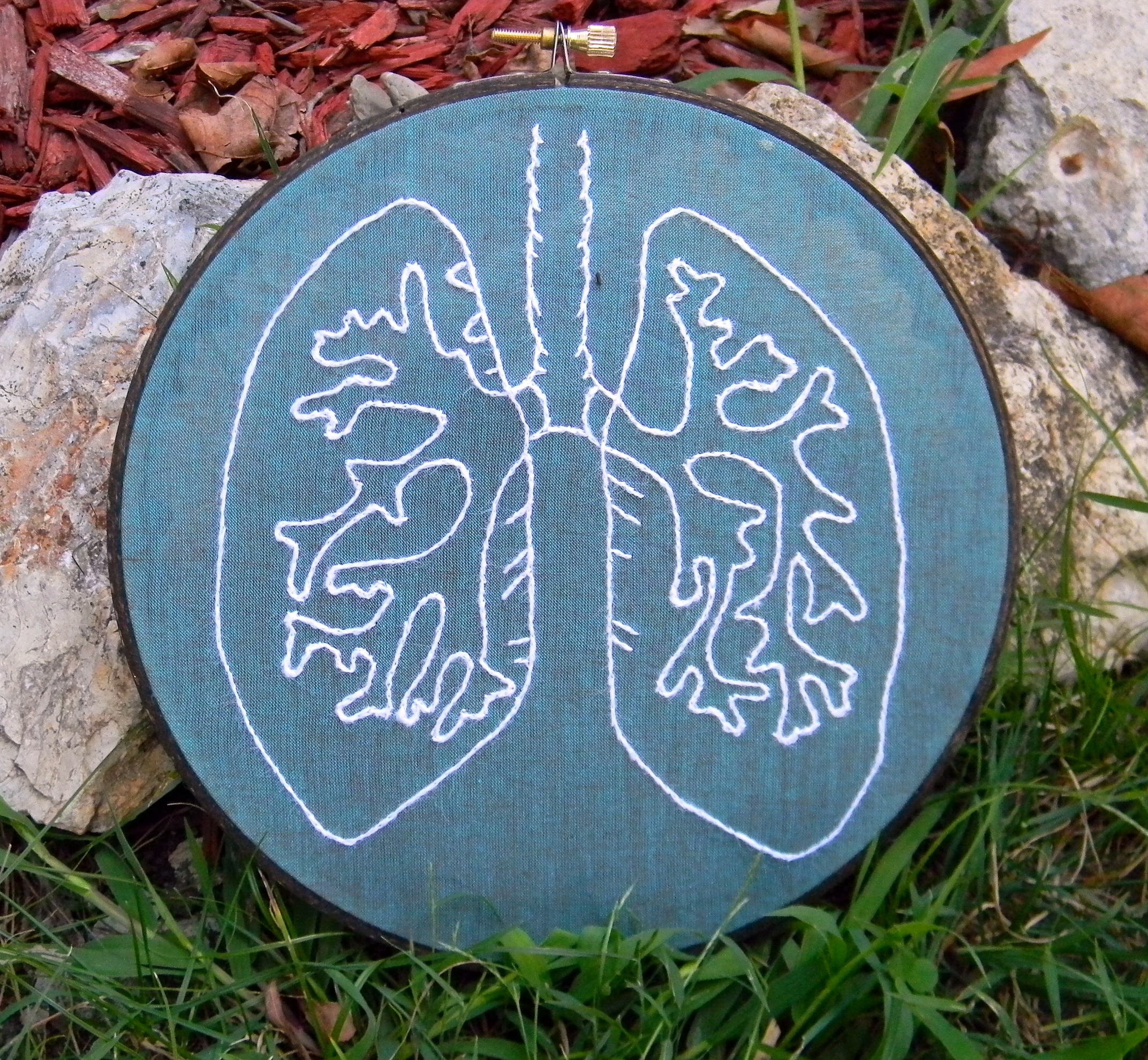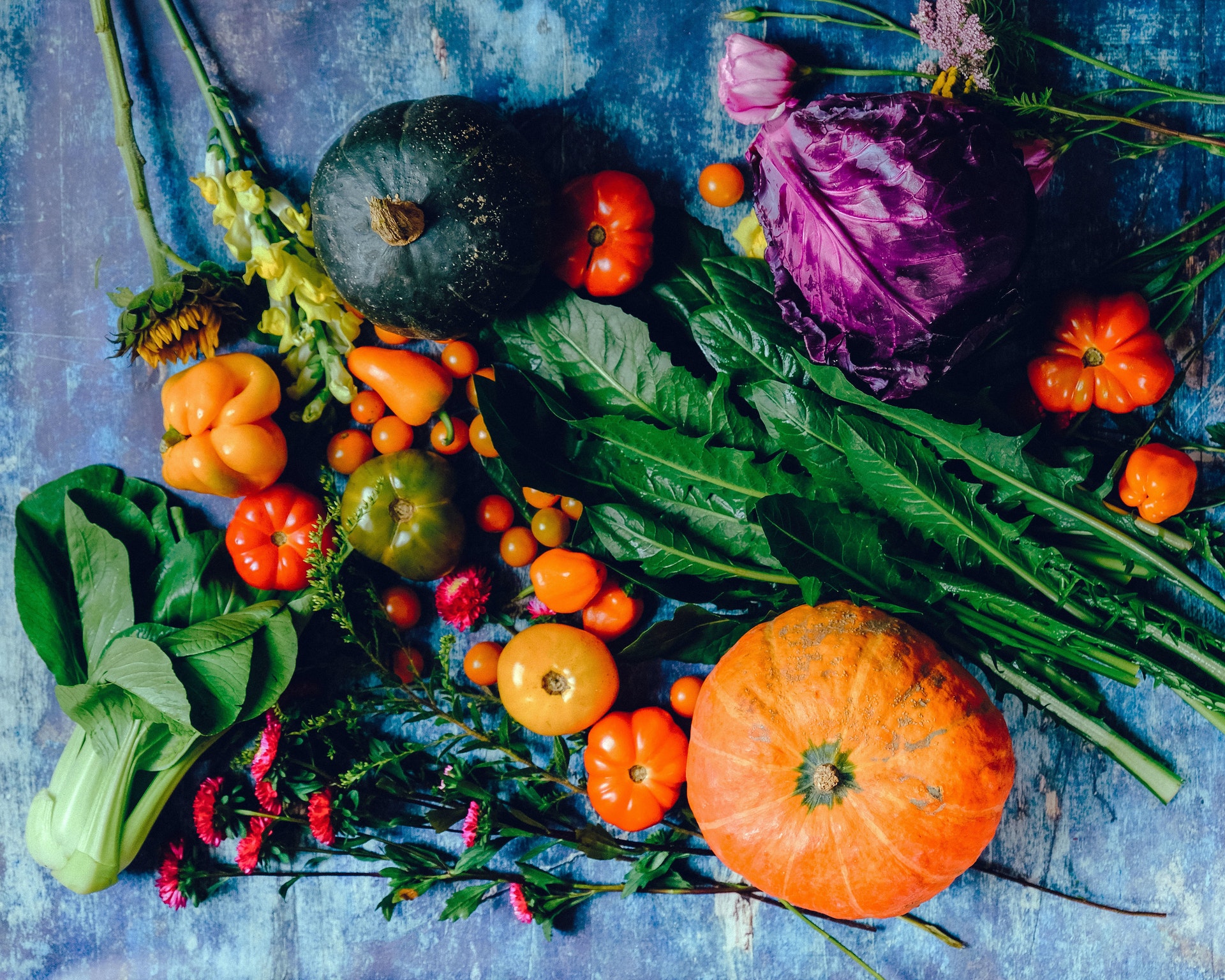Autumn, according to traditional Chinese medicine, is the time of fruition, introspection, setting limits, protecting boundaries, taking in the pure and letting go, a time when the Lung meridian and large intestine channels take center stage.
Chinese medicine talks about health and wellness through harmonizing with nature by balancing the Five Elements in the body – Earth, Metal, Water, Wood and Fire. In traditional Chinese medicine, every organ has a series of things associated with it.
Take the lungs for example:
Paired Organ: Large intestine
Element: Metal
Season: Fall
Climate: Dry
Emotion: Grief/sadness
Orifices: Nose
Tissues: Skin
Fluids: Mucous
Flavor: Pungent
Color: White
Direction: West
The lungs need dry energy to keep them as clean in order to function, yet they are sensitive to the excessive dryness sometimes encountered in the fall. Hence, the lungs need extra care in this season. As the energetic partner of the lungs, the large intestine supports all lung functions. Together, they are the first defenders against bacterial and viral infections.
Success
You are now signed up for our newsletter
Success
Check your email to complete sign up
To give our immunity a boost, we need to optimize lung and bowel health – breathing in the fresh and letting go of the waste, including both physical and emotional baggage.
According to Dr. Victoria Maizes, one of the leading physicians of Integrative Medicine, and author of 4 Immune-Boosting Tips From an Integrative Medicine Expert, recent studies have discovered, “aside from the elderly, most people who died with COVID-19 infection have coexisting conditions such as hypertension, obesity, and diabetes. These chronic diseases are highly correlated with unhealthy lifestyles.”
Dr. Maizes added that an estimated “90% of cardiovascular deaths could be prevented if Americans adhered to four preventive health recommendations (not smoking, maintaining a body mass index of <25, engaging in regular physical activity, and eating a healthy diet) and maintained healthy levels of three biomarkers (cholesterol <200, blood pressure <120/<80, and blood sugar <100).”
Sleep, diet, stress and emotion management are some of the key elements to look at in modulating our immunity. Here we will share some time-tested TCM tips as well as recommendations embraced by Integrative Medicine and supported by clinical research and/or observations.
1. Optimize your sleeping pattern
The Western medical observation
Sleep has a significant impact on how well the immune system functions. One research study has found that a persistent lack of sleep (defined as a week of fewer than five hours per night) increased the risk of catching cold by more than three times. It should be noted that adequate sleep also ensures the secretion of melatonin, a molecule which may play a role in reducing COVID-19 virus virulence.
The average adult needs seven or more hours of sleep. If possible, it’s best to go to bed earlier in the night and wake up early each day.
Sleep studies have discovered that going to bed and waking up in sync with natural light cycles is important for maintaining a balanced circadian rhythm. Circadian rhythms refer to natural biological processes in humans and other mammals. These internal clocks roughly follow a 24-hour cycle and correspond to exposure to light and darkness. In addition to affecting sleep patterns, circadian rhythms play a crucial role in appetite and digestion, body temperature regulation, hormone release and immune functions.
The traditional Chinese view
Similarly, Chinese medicine also recommends retiring for the day no later than 11 p.m., and rising between 5-7 a.m.. But traditional Chinese medicine and western health science differ in their understanding of the human body and wellness.
According to traditional Chinese medicine, the body has its own “organ clock.” Every organ has a specific time of day when it spends two hours, called a shichen (時辰) for repair and maintenance in order to continue functioning properly.
For example, the gallbladder is resting in the shichen between 11 p.m. and 1 a.m, while its paired organ, the liver, is off-duty from 1 to 3 in the morning.
The gallbladder and liver are energetic organs, working to break down foods and detoxify the body. Energy stagnation is associated with rage, resentment and frustration. Over-eating, eating late, and worse, binge-eating in the wee hours, can overwhelm the gallbladder and liver. As energy flows continuously from one organ to the next, overloading the gallbladder and liver can cause the lungs and large intestines to function poorly.

Lung time follows, from 3-5 am; and 5-7 am is the time for the large intestine.
The lungs and large intestine act on breathing in the fresh and letting go of the waste. When lung energy is out of balance (due to smoking, drug use, respiratory infection, celiac disease, or similar conditions), one wakes up with shortness of breath, asthmatic symptoms, or coughing. Imbalance of lung energy can cause sadness and grief.
Some early birds rise during lung time to engage in deep breathing, meditation and Qigong exercises to help cleanse the body and mind, and regulate emotions.
Most of us rise during large Intestine time. To start the day off right, drink water upon getting up, take some deep breaths, have a bowel movement, and avoid coffee.
Morning is the worst time to have caffeine. It is a diuretic which takes water to the kidneys and bladder for evacuation, and away from your colon and large intestine, where it is needed to keep up the morning repair and maintenance program.
2. Nourish your body with a healthy, anti-inflammatory diet
From years of research, it is becoming increasingly clear that chronic inflammation is the root cause of many serious diseases, including heart disease, cancer, and Alzheimer’s disease. Stress, lack of exercise, genetic predisposition, and exposure to toxins (like secondhand tobacco smoke) can all contribute to this condition, but dietary choices have an impact as well.
Research has found that diet plays a big role in changing the inflammatory milieu of the body. Dr. Andrew Weil, world-renowned integrative medicine expert, has written extensively on the anti-inflammatory (AI) diet. According to him, the AI diet is aimed at selecting and preparing anti-inflammatory foods based on scientific knowledge of how they can help our body maintain optimum health. Along with influencing inflammation, this diet will naturally provide steady energy, along with ample vitamins, minerals, essential fatty acids, dietary fiber, and protective phytonutrients.
General recommendations of the AI diet:
• Aim for variety and include as much fresh food as possible
• Consume omega-3 fatty acids from fish, or Taking fish oil supplement
• Avoid processed food and simple carbs (to prevent rapid blood sugar surge)
• Eat plenty of vegetables and fruits

Some integrative medicine experts recommend at least 5–7 servings of vegetables and 2–3 servings of fruit daily. A large lunch salad can provide 3-5 servings. Onions, garlic, parsley, celery, apples, tomatoes, oranges, nuts, and berries are highly recommended. Also, green tea and Curcumin are potent antioxidants and anti-inflammatory agents.
Dr. Weil recommends adapting one’s commonly used recipes to include these anti-inflammatory foods. If it is difficult to meet the recommended quantities, he suggests taking supplements such as Vitamin C, Vitamin D, and Zinc.
Food to protect the lungs and cleanse the intestines
According to Chinese medicine, the element metal, associated with fall and the lung/large intestine, is linked to white color and pungent taste, thus many foods, especially spicy, white foods, have an essence that supports the lung and its partner, the large Intestine. Excessive spices, however, can be irritating so caution is warranted. Individual tolerance, body disposition and health condition are equally important in diet modification.
Some good choices of food to strengthen the lungs include:
• Grain: Fiber rich grains such as brown rice
• Vegetables: Sweet potato, cabbage, Chinese cabbage, celery, watercress, turnip greens, mustard greens, and all the root vegetables, including daikon radish, carrots, lotus root, turnip.
• Beans: soybeans, navy beans, great northern beans, tofu, and tempeh.
• Fish: haddock, herring, flounder, halibut, scrod, and carp.
• Fruit: Pears, peaches, loquat.
• Herbs: Dill, basil, fennel, bay leaf, coriander, thyme, and licorice.
• Spices: Garlic, dill, fresh grated ginger, horseradish
3. Learn to manage stress and regulate emotions
Stress weakens one’s immunity and increases our risk of getting all kinds of sicknesses, from the most basic respiratory infection, to cancer. Prolonged, tense and unresolved emotions can magnify the impact of stress.
There are many different strategies to regulate stress and emotions, whether it’s long walks, deep breathing, guided imagery, yoga, tai chi, meditation, or qigong. The goal is to help one relax. Choose a method that works for you and stick with it.
Traditional Chinese medicine emphasizes being in tune with our bodies and how nature affects us; so adjusting our lifestyles to coincide with the change in season becomes instinctual. Along with relaxation exercises, eating healthy foods, and following a sleep schedule to enhance lung and intestinal health will help prime our immune functions, and facilitate the management of stress and emotion.
Tips for Everyday Lung Health
• Maintain good posture to open up the chest
• Maintain regular bowel movement
• Clean up both physically and mentally
• Rearrange furniture to open up space
• Declutter: Let go of things you no longer need
• Donate, helping yourself and others
• Avoid smoking
• Bundle up in windy and cold weather, especially your chest and neck to conserve lung energy
Learning to honor the changing needs of our bodies within the cycles of the seasons is a powerful way to become one with nature and maximize our innate immune power. Still, relapses are normal with the process of developing new healthy habits. Negative thinking and foul moods will test us during the process of changing.













